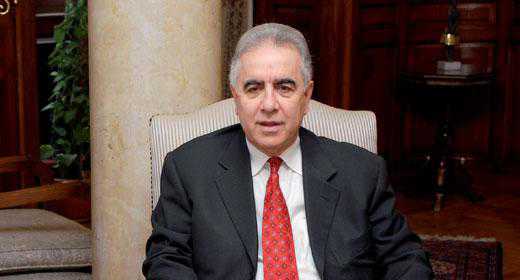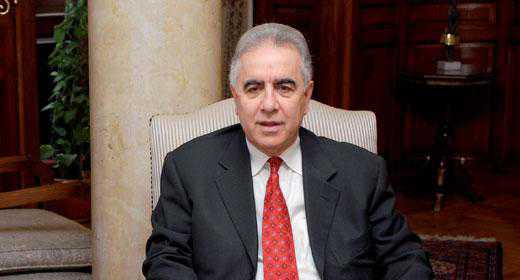Ever since independence in 1991, Armenia’s leaders have been reluctant to make any concrete demands from Turkey beyond recognition of the Armenian Genocide.
Only in recent years, Armenian officials have begun to speak about “the elimination of the consequences of the genocide,” without specifying the ‘consequences’ and the means for their ‘elimination.’
Earlier this month, however, a major shift was announced in Armenia’s foreign policy vis-à-vis Turkey, when Aghvan Hovsepyan, the Prosecutor General of Armenia, called for the return of historic Armenian territories at an international conference of Armenian lawyers in Yerevan. This is the first time that a high-ranking Armenian government official has made such a public demand from Turkey.
In a lengthy and comprehensive speech, Hovsepyan stated that the recognition of the Armenian Genocide by various countries is simply a moral and emotional issue. Calling for a switch to “the legal field,” the Prosecutor General indicated that “to eliminate the consequences of the Armenian Genocide” Turkey must “pay compensation to heirs of the Armenian Genocide, return to the Armenian Church the miraculously still standing Armenian churches and properties in Turkey, and give back the ‘lost territories’ to the Republic of Armenia.”
Prosecutor General Hovsepyan insisted that unless Armenians adopt this bold approach, they will not accomplish any concrete results in the next one hundred years, just as they did not in the last one hundred years. He proposed a thorough legal review of all international agreements regulating Armenia-Turkey relations, from the Berlin Treaty of 1878 to the signed but not ratified protocols of 2009. He also declared that the region of Nakhichevan is “an inseparable part of Armenia, albeit occupied by Azerbaijan.” Hovsepyan urged the assembled lawyers from around the world to prepare the legal case for territorial demands from Azerbaijan and Turkey and present it to the Armenian government for eventual submission to the International Court of Justice (World Court).
Statements made by a prosecutor general usually do not carry much weight in international affairs, if it were not for the fact that several other high-ranking officials, including Pres. Serzh Sargsyan, President of the Constitutional Court Gagik Haroutyunyan, Minister of Diaspora Hranush Hakobyan, Armenia’s Minister of Justice Hrair Tovmasyan, and Minister of Justice of Artsakh (Karabagh) Ararat Tanielyan, also made remarks on restitutive justice at the lawyers’ conference. It was clear that the Prosecutor General was the designated spokesman of the Armenian government to articulate its new tougher line toward Turkey in advance of the Genocide Centennial.
Pres. Sargsyan, using more circumspect language than the Prosecutor General, told the lawyers’ conclave: “The international recognition and condemnation of the Armenian Genocide, and elimination of its consequences will always remain a salient issue. As long as the Armenian State is in existence, all efforts to deny and send into oblivion this historical reality will be doomed. This greatest crime against humanity must be recognized and condemned once and for all, and first of all, by Turkey itself.”
In keeping with the government’s new policy orientation, Constitutional Court President Gagik Haroutyunyan announced that a special committee will be formed to prepare the legal documentation necessary for the pursuit of Armenian Genocide claims.
At the conclusion of the conference, the participants issued a joint statement asserting that the priority for Armenian lawyers is not proving the self-evident facts of the Genocide, but preparing a comprehensive legal document “to remedy the consequences of the Armenian Genocide.”
This is a welcome development in terms of arriving at a consensus between the Armenian government and the Diaspora on the objectives to be pursued for the 100th anniversary of the Armenian Genocide.
However, in order to move beyond mere emotionally inspiring statements, the Armenian leaders must take two immediate steps:
1) Withdraw the Armenian government’s signature from the counter-productive Armenia-Turkey Protocols. On the eve of the Genocide Centennial, it would be inconceivable to move forward with fruitless efforts to improve relations with Turkey, while preparing to file a lawsuit for restitution.
2) Form a team of international law experts to begin structuring the legal case against Turkey in the World Court and/or the European Court of Human Rights.
While skeptics may not take seriously the recent policy pronouncements of the Armenian authorities, the Turkish Foreign Ministry has no such doubts. Last week, Ankara denounced the Armenian territorial demands, announcing angrily that “nobody can dare to claim territory from Turkey!”



